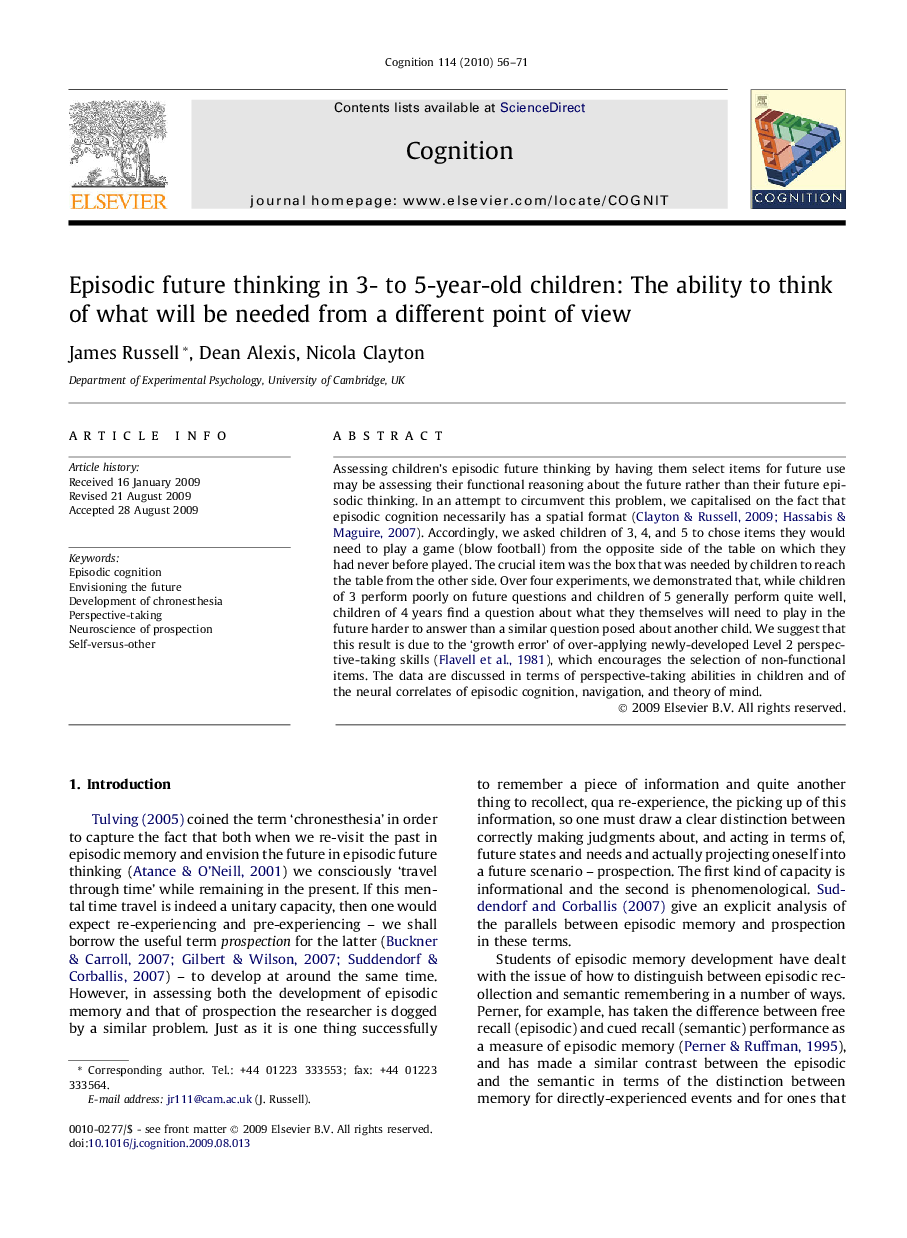| Article ID | Journal | Published Year | Pages | File Type |
|---|---|---|---|---|
| 926600 | Cognition | 2010 | 16 Pages |
Assessing children’s episodic future thinking by having them select items for future use may be assessing their functional reasoning about the future rather than their future episodic thinking. In an attempt to circumvent this problem, we capitalised on the fact that episodic cognition necessarily has a spatial format (Clayton and Russell, 2009 and Hassabis and Maguire, 2007). Accordingly, we asked children of 3, 4, and 5 to chose items they would need to play a game (blow football) from the opposite side of the table on which they had never before played. The crucial item was the box that was needed by children to reach the table from the other side. Over four experiments, we demonstrated that, while children of 3 perform poorly on future questions and children of 5 generally perform quite well, children of 4 years find a question about what they themselves will need to play in the future harder to answer than a similar question posed about another child. We suggest that this result is due to the ‘growth error’ of over-applying newly-developed Level 2 perspective-taking skills (Flavell et al., 1981), which encourages the selection of non-functional items. The data are discussed in terms of perspective-taking abilities in children and of the neural correlates of episodic cognition, navigation, and theory of mind.
